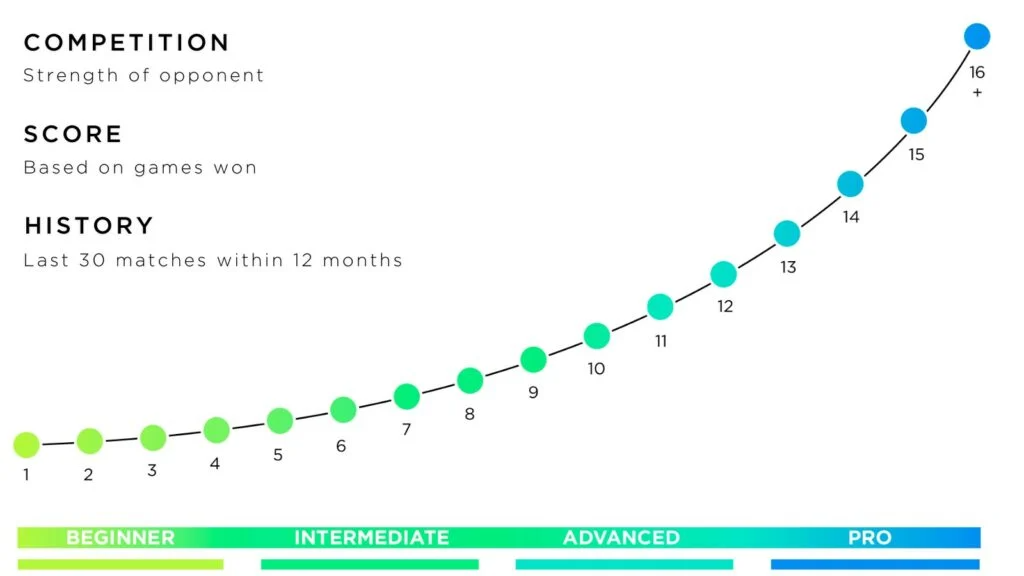
UTR Events
UTR (Universal Tennis Rating) is a global rating system that promotes fair and competitive play across the tennis world.
All players, regardless of age, gender, geography, or skill level, are rated on the same scale between 1.00 and 16.50 based on actual match results.
Participate in regularly scheduled UTR Tennis events, where coaches, students, and parents come together to encourage each other to reach new heights.
Join UTR Tennis events and discover your true ability, build confidence, and unleash your inner champion, both on and off the court.
Make new friends
UTR Tennis events create a supportive community where coaches, students, and parents form lifelong connections.
ACCURACY
The most accurate measure of skill-level
INCLUSIVITY
Every player can have a rating, regardless of age, gender or location
ACCESS
Entry into the Universal Tennis network
ANALYSIS
Track your progress
SHOWCASE YOUR GAME
Create your profile and track your progress
UPCOMING (verified) TENNISASIA UTR EVENTS
February 2026
- MO
- TU
- WE
- TH
- FR
- SA
- SU
- 26
- 27
- 28
- 29
- 30
- 31
- 1
- 2
- 3
- 4
- 5
- 6
- 7
- 8
- 9
- 10
- 11
- 12
- 13
- 14
- 15
- 16
- 17
- 18
- 19
- 20
- 21
- 22
- 23
- 24
- 25
- 26
- 27
- 28
- 1
Events for February
1st
Events for February
2nd
Events for February
3rd
Events for February
4th
Events for February
5th
Events for February
6th
Events for February
7th
Events for February
8th
Events for February
9th
Events for February
10th
Events for February
11th
Events for February
12th
Events for February
13th
Events for February
14th
Events for February
15th
Events for February
16th
Events for February
17th
Events for February
18th
Events for February
19th
Events for February
20th
Events for February
21st
Events for February
22nd
Events for February
23rd
Events for February
24th
Events for February
25th
Events for February
26th
Events for February
27th
Events for February
28th
Download The utr app
Every tennis player can have a UTR Rating. UTR provides an accurate measurement of a player’s true skill level, whether you are a recreational, junior, high school, college, or pro player.
The rating counts all results, including matches played in verified tournaments/events and non-verified matches. Verified UTR Rating counts match results played in only verified tournaments and events.
For example, USTA league/tournament matches count toward Verified UTR and UTR Rating. Casual/practice matches and self-posted scores count only toward UTR Rating.

In every match, there is an expected outcome, based on the rating difference between opponents. Let’s say you play an opponent with the following:
- Same UTR: The algorithm would project that you win the same number of games as your opponent. If you win more games, then your rating will go up.
- Lower UTR: If the system expects you to win 6-2, 6-2 but you end up winning 6-1, 6-1, then your rating would go up.
- Higher UTR: If you are expected to lose 6-3, 6-3, but you lose 6-4, 6-4, your rating will go up.
Your rating will go up or down based on how you perform vs. the expectation.
After one match result, you receive a projected UTR Rating (P). After approximately five matches, the rating becomes reliable. Your rating continues to update as more matches are added.
The following factors are used in the match weight calculation:
- Format – More weight is given to longer match formats. A match with a 3-set format receives more weight than an 8-game pro set or 4-game mini-set format.
- Competitiveness – The closer the rating difference between the players, the greater the match weight. For example, if a player with a UTR of 6.00 plays an opponent with a UTR of 5.00 (UTR difference of 1), the match receives more weight than one played against a UTR of 4.00 (UTR difference of 2).
- Reliability – The more reliable the opponent’s UTR, the greater the match weight. A match played against an opponent who competes often and has a reliable UTR receives more weight.
- Time Degradation –The algorithm represents current form; it gives more credit to matches played within the last few months.
- Compete Well – You can improve your rating by winning more games than expected, regardless of whether you win or lose the match and whether you play higher- or lower-rated opponents. Compete well and try to win as many games as possible; this is the best way to improve your rating.
- Play Often – The more matches you play, the quicker your rating will reflect your current form. It is also best to play against opponents who are close to your rating regardless of whether they are above or below you.
- Be Patient – Since UTR is a rolling weighted average, the effect of new results is slightly lagged. Your rating may take time to reflect a recent outcome.


